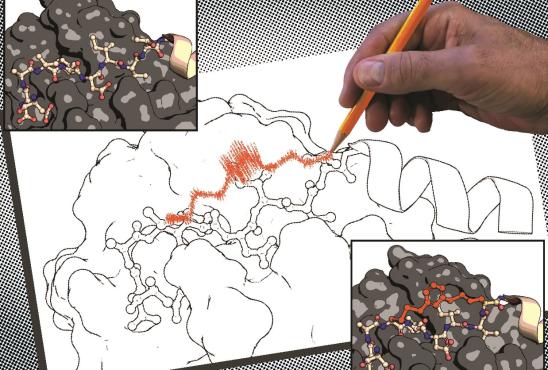Research
The goals of the Kritzer lab are:
- To explore new chemistry and biology that helps understand human disease and informs drug development.
- To foster professional success and personal growth by valuing passion for science, smart work, knowledge, and creativity.
- To provide a welcoming, collaborative, and fun space for us to train as scientists and pursue scientific questions together.
The last half-century has seen a revolution in how we understand and treat disease. The most common plan of attack is to understand disease at the molecular level, then judiciously target key proteins. However, most drugs target only a few types of cellular proteins such as kinases and signaling receptors. Expanding beyond these existing targets could lead to more effective treatments for many diseases, including viral infections, acute and chronic bacterial infections, rare genetic disorders, and currently intractable cancers.
Our lab uses innovative molecules to block disease-associated proteins. In one project, we are exploring constrained peptides and druglike small molecules that can control the cellular process of autophagy, which is critical for basic biological processes as well as diseases ranging from lysosomal storage disorders to advanced malignancies. We are using these compounds to provide fundamental biological insights and advance drug development, including new methods for targeted protein degradation that harness autophagy to obliterate disease-causing proteins using the cell’s own recycling mechanism.
Discovering new bioactive molecules is only the first step. In several other projects, we are exploring new chemistries that increase the potency and usefulness of bioactive peptides. We are also inventing new methods for measuring cell penetration, which is the most difficult roadblock for many emerging therapeutics including peptide therapeutics, protein therapeutics, RNA therapeutics, and gene editing.

